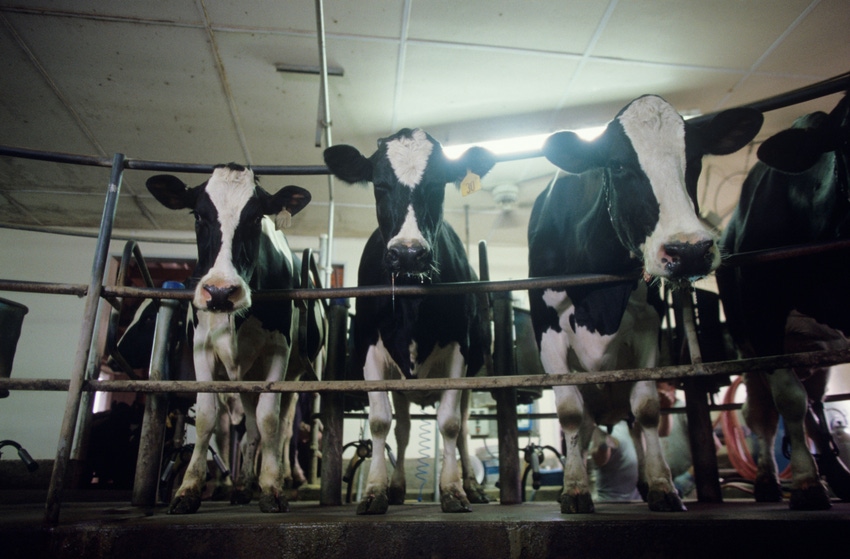HPAI detected in South Dakota dairy herd
Bovine Influenza A Virus symptoms include a drop in milk production, loss of appetite and changes in manure consistency.
April 11, 2024

The South Dakota Department of Agriculture and the Animal Industry Board have received confirmation from the USDA's National Veterinary Services Laboratory of the detection of highly pathogenic avian influenza in a dairy cattle herd in South Dakota. This is the first confirmed case of HPAI in a dairy operation in South Dakota.
“South Dakota Dairy Producers encourage all dairy producers to closely monitor their herd and contact their herd veterinarian immediately if cattle appear symptomatic,” said Marv Post, chairman of South Dakota Dairy Producers. “USDA continues to emphasize that pasteurization kills the virus and that milk and dairy products are safe to consume.”
Bovine Influenza A Virus symptoms are mostly restricted to late-stage lactating cows and include a drop in milk production, loss of appetite and changes in manure consistency. Producers are encouraged to enforce their biosecurity plans such as limiting visitors, separating new animals and sick animals, and cleaning pens, equipment, vehicles, clothing, footwear and hands.
In addition to South Dakota, USDA’s Animal and Plant Health Inspection Service has confirmed the detection of BIAV in dairy herds in Texas, Kansas, Michigan, New Mexico, Idaho, North Carolina and Ohio.
Wild migratory birds are believed to be the source of infection, however, USDA’s Animal and Plant Health Inspection Service said the spread of the illness among the Michigan herd also indicates that HPAI transmission between cattle cannot be ruled out.
South Dakota's last reported HPAI detection in a commercial flock was on March 12. The virus was confirmed on a commercial turkey operation of 31,200 birds in Hutchinson County, South Dakota.
At this stage, there is no concern about the safety of the commercial milk supply or risk to consumer health. Dairies are required to ensure only milk from healthy animals enter the food supply chain. Additionally, the pasteurization process of heating milk to a high temperature ensures milk and dairy products can be safely consumed, as confirmed by the Centers for Disease Control. In line with long-standing policy, the CDC does not recommend consuming unpasteurized milk or raw milk. Pasteurization has continually proven to successfully inactivate bacteria and viruses, like influenza, in milk.
About the Author(s)
You May Also Like



